- Home
- Peter Rimmer
On the Brink of Tears
On the Brink of Tears Read online
On the Brink of Tears
Fifth Book in the Brigandshaw Chronicles
Peter Rimmer
Contents
Part 1
Chapter 1
Chapter 2
Chapter 3
Part 2
Chapter 1
Chapter 2
Chapter 3
Chapter 4
Part 3
Chapter 1
Chapter 2
Chapter 3
Part 4
Chapter 1
Chapter 2
Chapter 3
Chapter 4
Part 5
Chapter 1
Chapter 2
Chapter 3
Chapter 4
Chapter 5
Chapter 6
Chapter 7
Part 6
Chapter 1
Chapter 2
Chapter 3
Part 7
Chapter 1
Chapter 2
Chapter 3
Chapter 4
Chapter 5
Part 8
Chapter 1
Chapter 2
Chapter 3
Chapter 4
Part 9
Chapter 1
Chapter 2
Chapter 3
Dear Reader
Principal Characters
About Peter Rimmer
Also by Peter Rimmer
Acknowledgments
Part 1
Hope Springs Eternal — February to November 1931
1
De Wet Cronjé died of malaria in February 1931, thirty-two lunar months after the crash that had broken his back, paralysing him from the neck down. Finally, Harry Brigandshaw was free to look for a way home.
As captain of the seaplane, he had done his duty. Alone, thin and sick at the age of forty-four, he was going to get to London and England, out of the Belgian Congo forest.
‘The Lord,’ Harry told himself after burying the flight engineer, ‘helps those that help themselves.’ He still had a gun and ammunition. After thirty lunar months that Harry had counted out, Iggy Bowes-Lyon and Fred Dwyer, the civil engineer, were dead or they would have come back with enough equipment to transport de Wet Cronjé out of the bush.
They had flown out of Khartoum on their way down Africa in the seaplane. The port engine had overheated, making Harry land on Lake Victoria close to the shore. The local tribesmen had run away. It was still the dry season.
Two days later de Wet had the engine stripped, repaired and running smoothly. Harry took off across the calm water of the lake. An hour later, the engine overheated bringing them down again. With the malfunctioning engine feathered, Harry had taxied into the shore. Again, the locals ran back into the forest.
With rain clouds building, de Wet stripped and repaired the engine. When they took off and climbed to five thousand feet, Harry could see the cyclone over the lake. Turning the seaplane, Harry flew away from the bad weather deeper into the Belgian Congo, looking for a river.
Both engines were performing normally. Iggy Bowes-Lyon, Harry’s co-pilot, had found a river on the map. Ten minutes later, they sighted it, the rain driving hard into the safety glass of the closed cockpit.
The river was wide with enough room between the branches of the tall trees to land the seaplane, but it wound through dense forest. It took Harry half an hour to find a stretch long and straight enough to land. But by now they had lost all sense of direction, with the rain lashing and the light dimming as black clouds filled the sky.
“You can take her down here, Harry,” said Iggy Bowes-Lyon, pointing.
“Everyone take their seats. I don’t have time to do this twice.”
The seaplane came down in a perfect landing, kissing the smooth surface of the river, the floats sending volumes of water out behind its tail. The tall trees to either side kept the wind off the surface. Harry relaxed as the aircraft settled onto the water.
The hippopotamus came up in front of the starboard float, snapping the struts to the starboard wing and pulling it down into the water at forty miles an hour, sending the seaplane straight at the shore.
De Wet Cronjé was still standing up, the impact twisting him violently into the seat he should have been strapped into, breaking a vertebra in his spine.
The safety glass of the cockpit two feet in front of Harry slammed into the boughs of the trees that came down to the water, cushioning the impact. At rest, nothing happened other than the rain. There was silence.
“Everyone okay?”
“I’ve buggered up my back. I can’t move… Where are we?... Shit it hurts.”
Having built a portable boat from the hull of the aircraft, Iggy and Fred went for help two months after the crash and their first contact with Tutsi tribesmen. The boat was big enough for two men, powered by paddles and light enough to porter around the rapids. There were parts of the river that ran under the trees. Quite impenetrable.
In the months of nursing de Wet, Harry had picked up enough Tutsi to make himself understood. A mile from the river, the Tutsis had cut themselves a clearing in the forest for their village. The villagers had found the crashed aircraft when they came to fish in the river.
The tribesmen had helped carry de Wet to their village in Hutu country. It was built like a fortress with a high log fence round the huts. There were no guns in the village. The tribesmen had never even heard of white men. It took Harry a week to realise the Tutsis thought they were gods. In sign language, Harry had explained how they fell out of the sky.
They were fed and given a hut of their own next to the local priest. Every day the priest threw the bones in front of the four white men, grinning at them toothlessly. The priest was an old man, the oldest black man Harry had ever seen.
When Iggy and Fred left, they went at night. The priest found out in the morning and flew into a rage.
When the Hutu attacked the village at the end of the year that was 1930, Harry had fired his gun in self-defence, the first time the Tutsis had heard a gun. The attack came in the night from all sides. Harry ran round the perimeter of the stockade firing into the forest. The Hutu ran away.
The priest smiled at Harry with deep understanding, now certain Harry was the Great River God, fallen from the sky.
By then Harry was certain Iggy Bowes-Lyon and Fred Dwyer had perished. They knew where the seaplane had crashed. With the on-board compass and the sextant, Harry had pinpointed the crash on the map. They were two hundred miles by air from the shore of Lake Victoria. The river ran into the lake.
Harry Brigandshaw knew every man had his price. The price for the village headman was guns. Ever since Harry had fired indiscriminately into the forest giving the impression of many guns, the village had been left alone by the Hutu.
“I need six men to build rafts as we make our way down the river. We will walk round obstacles cutting a path through the forest. At each part of the journey, we will make a new raft until we reach the big lake where I will make contact with my people. Your man will bring back guns like this one on the backs of horses. Many guns. You will become a powerful king, and you will rid your country of Hutu. Only when I give your men the guns will they let me go. Until then I will remain your prisoner.”
Deep in the eyes of the village headman Harry saw the sickening mix of power, greed and lust.
The next day, over two years after he crashed into the forest, Harry Brigandshaw began the long journey home to his family in Rhodesia. The bribe had worked. The priest was told by the headman to mind his own business; the guns were more powerful than the priest.
Harry’s price was selling his soul to the devil. He was running guns to save his life. Once more in his life he was going to be instrument
al in killing other people. For Harry, wherever he was, it always came to war.
Six months later the SS Corfe Castle put into the port of Dar es Salaam in British East Africa. Before the war that had ended with the Treaty of Versailles, with unobtainable restitution imposed by the French on the losing Germans, the port and surrounding country inland had belonged to Germany.
The captain of the ship went ashore, the smell of cloves still rich in his nostrils, the wind blowing south from the spice island of Zanzibar. The Corfe Castle was part cargo with two hundred passengers on their way round Africa from the Cape of Good Hope. After Dar es Salaam the ship would call at Mombasa in Kenya and Aden before steaming slowly up the Suez Canal into the Mediterranean.
The holds were already open with cranes pulling cargo from the depths of the ship, a task that would take two days while the passengers enjoyed themselves ashore. Dar es Salaam was an old Arab port from far back before the colonisation of Africa by the Europeans and a favourite of Captain Cyrus Craig. He had handed the ship over to the duty officer so he could enjoy some spare time on his own looking over the ancient Arab forts and byzantine buildings.
“Good morning, Cyrus, you look chirpy.”
The voice was quite familiar. The face looking at him from the end of the gangway was not. The man had grey hair down to his shoulders, pulled back from his face by a red band an inch in width round his forehead. He was as thin as a rake, with yellow skin and eyes full of mirth. To Cyrus Craig, the man seemed to be thoroughly enjoying himself.
“I’ve been waiting a month in Dar,” said the familiar voice that broke into a hearty laugh as Cyrus took the last step onto the dock.
“If you don’t remember, I own that ship you just stepped off. Fact is, I gave you your job. If I look that bad it’s not surprising. Three months getting down the bloody river. A month at the river mouth in a Tutsi village waiting for a stray dhow to sail in and take me across the lake to Mwanza and the railhead where I bought some guns for my friends. Before that a prisoner with a paralysed flight engineer, the headman not willing to let us go. They called us the River Gods, falling out of the sky… And I am not dead. Iggy and Fred probably, my co-pilot and the civil engineer, who tried to get out of the village to find help. Couldn’t move de Wet, poor sod, died of malaria six months ago… So here I am. Fred Dwyer was going to build a dam across the Mazowe River to irrigate five thousand acres of orange trees next to my farm.”
“Harry?”
“That’s better. However, I hope you can take me to a hotel and buy me lunch after a few civilised drinks. The chief in Mwanza took my cheque for the guns after the British Resident signed the back of it for me. Nice chap. Said the photograph on my passport which I salvaged from the crash looked nothing like me. He was in the trenches near my squadron during the war. After I described a few things, including the insignia of my Royal Flying Corps squadron and my own aircraft in particular, we got drunk together for me to try and kill some of the bugs. Flew over his trench every morning for three months on dawn patrol before he was wounded and sent back to blighty. It’s a long story. I don’t think he believed a bloody word but he was lonely. Cashed a cheque for me to get on the train and buy food in Dar while I waited for the two-monthly roundtrip of one of my ships. Slept on the beach.”
“You don’t own the Corfe Castle, Harry. Don’t own Colonial Shipping. The government with the help of Percy Grainger sold your shares to pay death duty when the court pronounced you dead after you were missing for two years. They took everything.”
“What’s Percy got to do with it?”
“He now controls Colonial Shipping. While you were missing, the stock markets crashed. We’re in a terrible depression that many think will lead us into another war with Germany. For the purposes of death duty, so the story goes, they valued your shares when you went missing, selling them two years later for less than half that price. Grainger made an offer to buy your Colonial Shipping stock at a higher price than quoted on the stock exchange, enough for your estate to pay the government what it was owed in death duty. Since then the stocks have again dropped in half so Grainger and his syndicate aren’t laughing. He even offered the captains some of the shares, which a few of them bought, more to keep their jobs than anything… Are you all right, Harry? Of course I will still buy you lunch. We’re old friends. I’ll give you passage to England even if the purser, who’s a skinflint, makes you share my cabin… Why are you laughing hysterically?”
“’Cause I’m not dead. The government will have to give me back my money. Percy will have to give me back my shares at the current price. I’ll still have the company and a piss-pot full of money. The captains can keep their shares till they go up again.”
“The rest are going to lose half their investment.”
Only then did Harry stop laughing.
“Where are my wife and children?”
“In Rhodesia on Elephant Walk. You never registered the farm in your name when your father died. The government took everything you owned in England but couldn’t take the farm.”
“What’s my house in Berkeley Square now worth?”
“About half what the new man paid for it.”
“Being dead gets better and better… So no one else heard a word?”
“Nothing until now.”
“The Tutsi must have killed Iggy, or the canoe we made turned over. The bloody river was infested with crocodiles… We were in the RFC together. One of the best friends a man ever had. His cousin is married to the Duke of York. If anything happened to the Prince of Wales and King George, York would be King of England… Poor Iggy. All that way through the war to die going down a bloody river in the middle of the African bush. I know if he got through, he would have come back with another aircraft to lift de Wet out of the forest. De Wet was Iggy Bowes-Lyon’s ground engineer at the beginning of the war before they joined my squadron. There were a lot of South Africans fighting for the British during the war. Like us Rhodesians. Even some of the Afrikaners fought for the British despite what we did to their women and children in the concentration camps… Don’t let me get going on that subject, Cyrus… Come along now, we’re going for lunch. Some hotel with good food that doesn’t have a dress code at lunchtime or they won’t let me in.”
Vivian Makepeace and Thornton Holmes were having lunch when Cyrus Craig and Harry Brigandshaw walked into the dining room of the Zanzibar Hotel. Colonel Makepeace was the Controller of British East Africa, the Governor’s administrator of the territory that stretched as far north as Uganda. Kenya to the northeast was a colony with its own administration.
District Commissioner Holmes was in charge of the Tanganyika Territory. The two were equal in rank by the rules of the British Colonial Service. Both had been in South House together at Cranleigh, a boarding school in the Surrey countryside. The public schools bred what was considered the right kind of man to administer the empire safely and had done so for centuries.
The two men had first become friends at the age of fifteen when they played rugby for the Colts, the school under-16 side. Later they had gone on to play cricket and rugby for the school. Playing for the school at Cranleigh was just as important as passing any examinations and more difficult, or so it was said in the school of empire.
Vivian saw Harry first, and put down his knife and fork.
“That’s the chap I was talking about.” Thornton turned in his chair to look in the same direction as his friend. “White man sleeping rough on the beach is a disgrace. We had an askari look at him from a distance. The chap was sleeping under palm fronds. Built the shelter himself, according to the askari, said it kept out the rain. Man couldn’t make out what he was, skin the colour of putty. I mean we couldn’t really have a white man lying on the beach. Bad show, that kind of thing. Had him followed into town. Bought food with money he’d probably stolen. Funny thing, when he spoke they said he sounded like us so I went to have a look for myself. Didn’t get close, of course, the chap stank. Do you know, that
chap over there almost had an English public school accent! I was in the bazaar looking to mind my own business but I heard him speaking to the shopkeeper in English. There was a nasal twang in his speech that certainly wasn’t British. South African, maybe. Man shouldn’t be allowed in a hotel like this. I’ll call the manager and have him thrown out. Who’s he lunching with?”
“They’re having a jolly good time, Viv. Friends, I’d say. Old friends. The other chap looks all right… Waiter! Please call the manager of the hotel to my table. I want a word with him.”
They both watched the black waiter go off on his errand.
“Do you know, I rather think I can smell him from here,” said Colonel Makepeace.
“Don’t be silly. Burns wouldn’t allow that,” said the District Commissioner, looking at the unkempt man whose blue eyes fixed on him in return and refused to let go. Thornton was the first to look away.
“That’s no bum, old chap. Gave me a look just then. The type that doesn’t lose a challenge. Looked straight into me. That chap’s used to people doing what he tells them. Gave me the bloody shivers… Here comes Burns.”

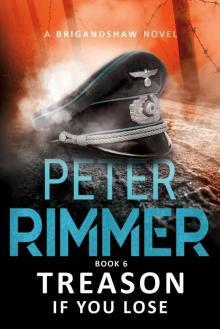 Treason if You Lose
Treason if You Lose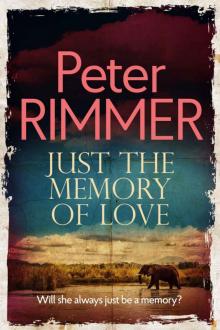 Just the Memory of Love
Just the Memory of Love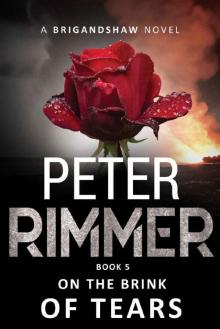 On the Brink of Tears
On the Brink of Tears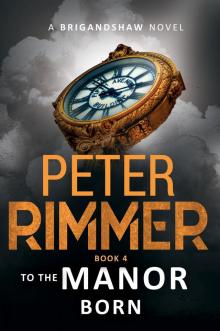 To the Manor Born
To the Manor Born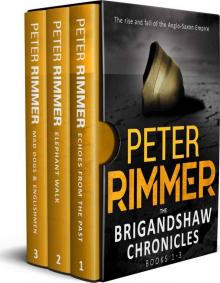 The Brigandshaw Chronicles Box Set
The Brigandshaw Chronicles Box Set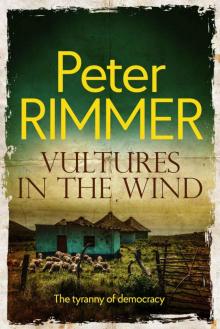 Vultures in the Wind
Vultures in the Wind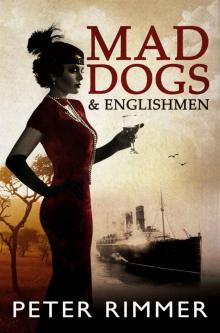 Mad Dogs and Englishmen (The Brigandshaw Chronicles Book 3)
Mad Dogs and Englishmen (The Brigandshaw Chronicles Book 3)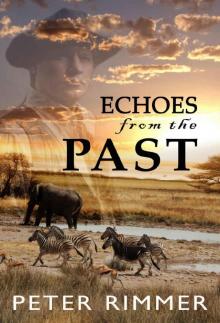 Echoes from the Past (The Brigandshaw Chronicles Book 1)
Echoes from the Past (The Brigandshaw Chronicles Book 1)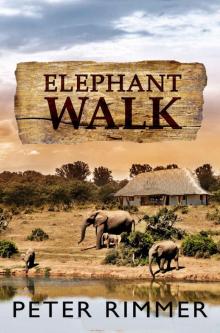 Elephant Walk (The Brigandshaw Chronicles Book 2)
Elephant Walk (The Brigandshaw Chronicles Book 2)